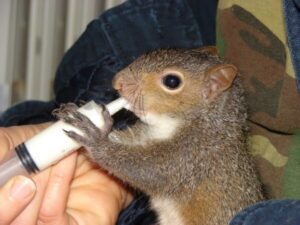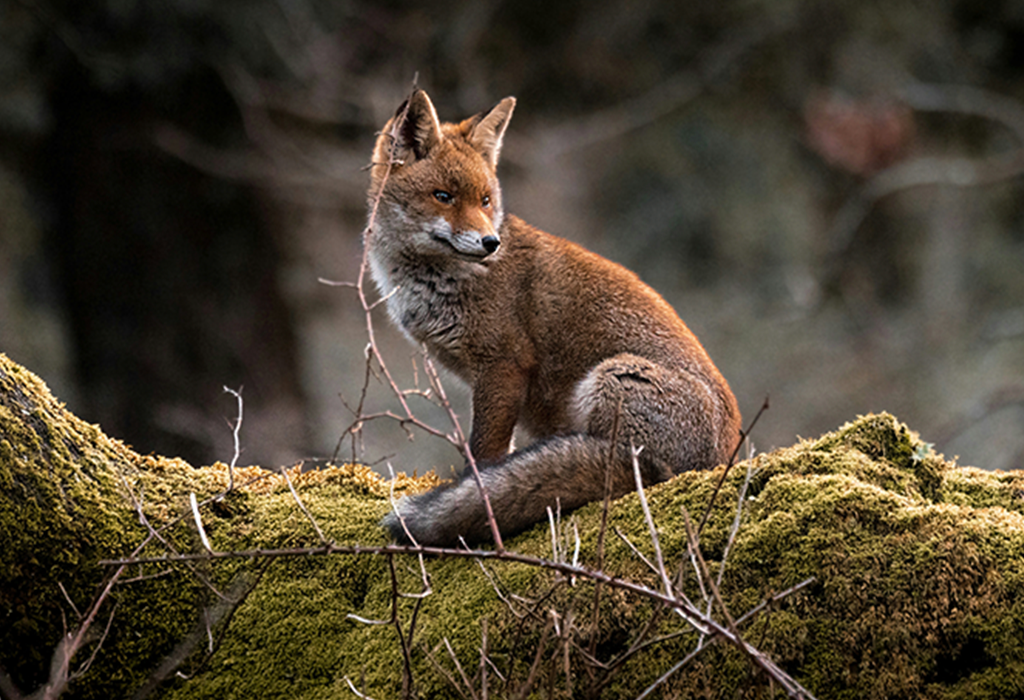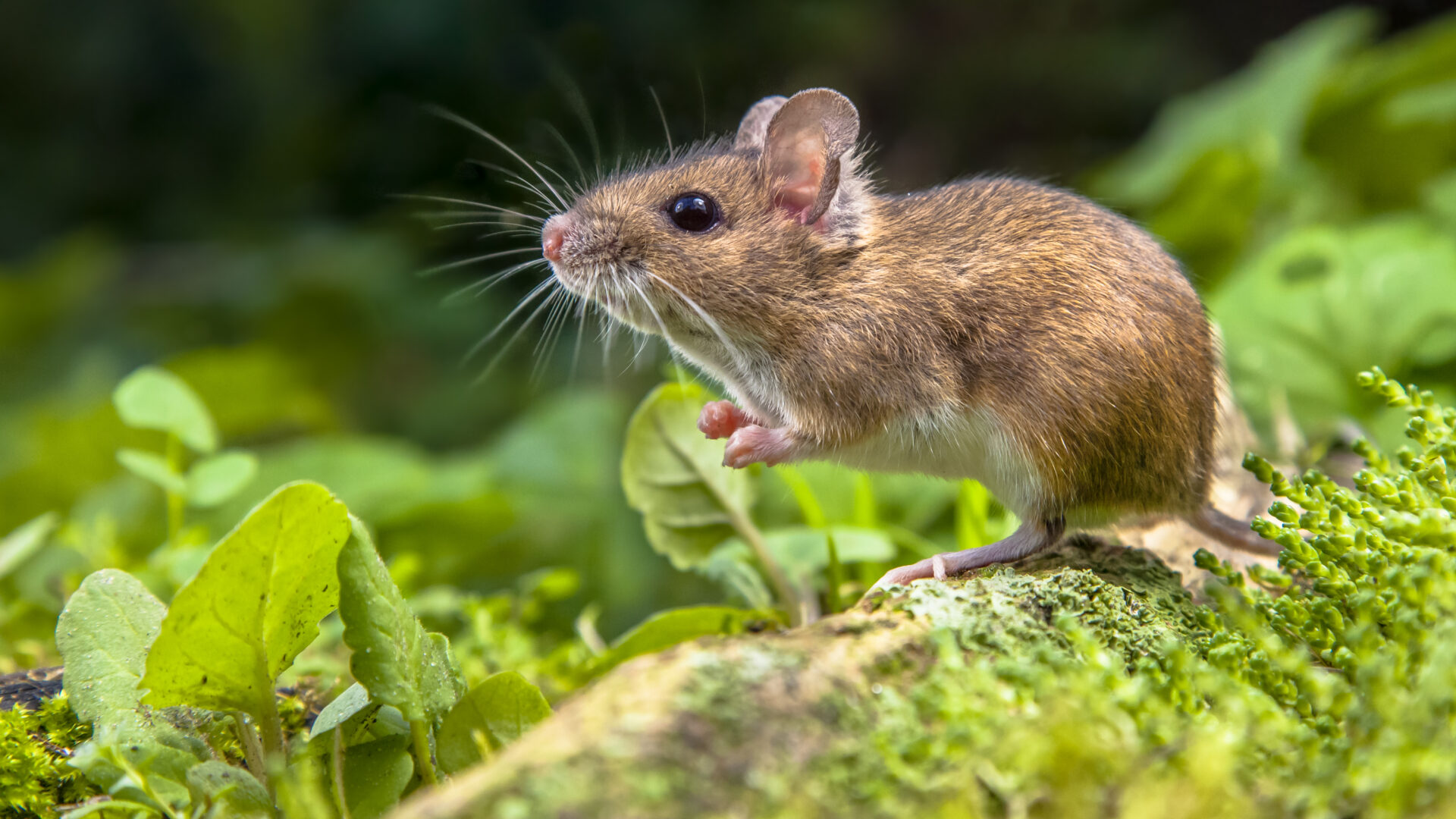The climate crisis is bringing extreme weather that threatens animals everywhere. Heatwaves, droughts, floods and storms increasingly put animals at risk of being displaced, abandoned or endangered. While there are actions we can take to help animals overseas – going vegan to help protect wild habitats, for example – there are many ways to help those closer to home.
Help animals in hot weather
Every year there are reports of dogs who suffer and even die from being left in hot cars. Parked cars can reach unbearable temperatures very quickly, even when left in the shade or with the window open. If you spot a dog who has been left alone in a hot car, please call 999 immediately.
Dogs are also at risk when walking in hot weather. Not only can the hot pavement burn their paws, most cases of heatstroke are triggered by ‘normal’ exercise like walking, playing or running. Heatstroke can also occur if your dog simply ‘sunbathes’ for too long.
To avoid heatstroke in dogs, walk them first thing in the morning when it’s still cool and leave the balls and toys at home. Ensure your dog has access to shady areas when outside (and ventilated rooms while indoors) and always carry water with you.
If you notice any signs of heatstroke (panting, drooling, weakness, confusion or vomiting), contact your vet immediately and start first aid. For advice on giving first aid to dogs with heatstroke, visit the PDSA’s website.
Blue-green algae, which can be highly poisonous or even fatal to dogs, can reach higher concentrations in warm and sunny weather, so it’s important to be vigilant. For more information on blue-green algae, visit the PDSA’s website.
Cats too are at risk of heatstroke. Like dogs, flat-nosed breeds are at much higher risk of heatstroke, leading to severe dehydration, organ damage and death. If you notice any signs of heatstroke (panting, vomiting, wobbliness), contact your vet immediately and start first aid. For general information and advice, including giving first aid to cats with heatstroke, visit the PDSA’s website.
To avoid heatstroke in cats, always check sheds, greenhouses, conservatories and cars before closing them; never leave cats in rooms with poor ventilation; and avoid travelling with them on hot days, just like you would with dogs.
If you see farmed animals in hot weather without access to clean water and/or shade, and believe they are in danger, please call the RSPCA directly on 0300 1234 999. You can also contact the Animal and Plant Health Agency (APHA) on 0300 0200 301.
The APHA should also be contacted if you are concerned about farmed animals being transported in hot weather (such as a broken-down vehicle or a slow-moving traffic jam), as well as the Trading Standards department of your local authority (local to the site of the broken-down vehicle, not your home). In extreme scenarios – accidents or a vehicle on fire – call 999 to make the police and/or fire brigade aware.
It’s a good idea to note down the time and location, company names or logos, direction of travel, including name of road, and vehicle registration for when you report the incident to any of the mentioned authorities.
Bird baths and garden ponds are valuable assets in hot weather. Site your bird bath away from bushes and trees to minimise the threat of cats and other predators. And ensure your pond has a gently sloping ‘beach’ area where birds can drink and bathe. A slope also offers an escape route for any wildlife who may get stuck – similar issues can arise with water butts, which should be covered to prevent drowning.
If you don’t have a bird bath or pond, old bowls, plastic mushroom boxes or plastic bottles cut in half can be used to provide water for thirsty birds.
A bird’s food, including insects and worms, may be less available during long spells of heat, so providing a conventional bird feeder (or growing a wildflower patch to attract insects) will help birds, and their chicks, survive drought and hot weather.
Finally, make sure nest boxes aren’t sited in the glare of the sun, where they can quickly reach critical temperatures inside! Bird nest boxes should ideally face between north and east. Some shade in the form of a small tree or climbing vine will help with shade and provide useful cover when the fledglings emerge.
In times of drought, you may need to top up your garden pond. Always use rainwater collected in a water butt or, if you have to use tap water, make sure you leave it in a container for at least a day to allow harmful chlorine to dissipate. Varieties of oxygenating water weed will help to keep a pond healthy and aerated, boosting oxygen levels during hot temperatures.
Providing natural shading around your pond prevents the water from warming in direct sunshine, but be careful of overfeeding fish, as waste compounds (from the build-up of uneaten food) can become more toxic in warm weather.
Leaving areas of your garden with leaf litter, logs, rockeries (piled paving slabs work well) and scrubby vegetation provides amphibians with cool shelter from hot weather and predators.
Elsewhere, warm weather combined with low rainfall can reduce water levels in rivers, lakes and canals. Fish become stressed when oxygen levels decrease, so if you notice fish struggling, gasping on the surface or dead, you can report this to the Environment Agency incident hotline on 0800 807060.
Badgers, foxes, bees and other insects all need water to drink and, when temperatures rise in the summer, a drinking bowl can be a lifeline. Adding some pebbles to a dish of water gives access to all our animal cousins, from birds to insects to mammals, without the risk of drowning.
Watering our plants is nice for our gardens, but it also helps insects, who rely on them for food and shelter, and to complete their life cycles. We can also help our insect friends by floating a piece of flat wood in any exposed water, such as a pond, open water butt or swimming pool, in case they accidentally get trapped in their pursuit of a drink.
Reports of dehydrated hedgehogs increase in summer. If you see a hedgehog during daylight hours, there may be a problem, as they are normally only active at night.
Lactating mums will need extra food and water when supporting their young. Dry conditions will reduce certain natural food such as worms and slugs, so mums may have to forage for longer to be able to feed their babies. This can lead to them being active past dawn and before dusk.
If a hedgehog appears to be underweight or weak (including not curling into ball when approached), seek advice from a local wildlife rescue or visit the British Hedgehog Preservation Society for more information on feeding our spiky friends.

Help animals in cold weather
The cold brings different challenges for our animal friends, but there are still ways we can help them.
Put out food and fresh water for birds, hedgehogs and small mammals, and make DIY shelters like hedgehog houses, toad abodes or bird boxes for small animals to nest and hibernate in, ensuring they are frost-free. Cover pools, ponds and water butts so animals don’t fall in and struggle to escape, and create ramps so they can climb out.
For birds, clean feeders containing a winter seed mix and fresh water can be a lifeline (fat balls provide extra energy in winter), as can leaving areas of your garden ‘wild’ with leaf litter, logs and scrubby vegetation.
Toads, hedgehogs and insects will also appreciate a nice leaf pile, but be sure to check it before raking, removing or burning. Leaving herbaceous plants and hedges and winter-fruiting trees like hawthorn and holly gives animals a chance to forage for autumn berries, as well as somewhere safe to shelter from winter storms or predators.
A few small changes to our everyday habits can make a huge difference to animals. For example:
- Keeping cats indoors at dawn and dusk, when small animals are most likely to be foraging and exploring
- Not using slug pellets or other pesticides, which are harmful to animals like hedgehogs and badgers
- Keeping netting and litter off the ground where small animals could become trapped
- Driving slowly after dark when toads, hedgehogs and other animals may be crossing the road in search of food or a place to sleep
If you’re lucky enough to have a badger visit your garden, give them a helping hand with supplementary food (peanuts, oats, apples or sweetcorn) and fresh water or by clearing an entrance so they can come and go easily. Never disturb a badger sett or allow your dog to, and report any incidents of badger baiting or persecution to the RSPCA or police immediately.

Take action
There are endless ways to help Wildlife and Our Shared Planet from petitions to demos and more

